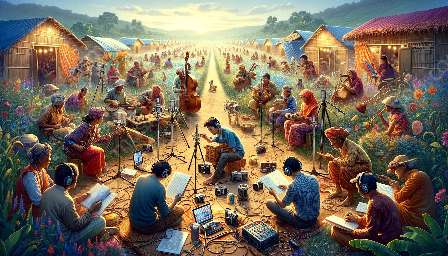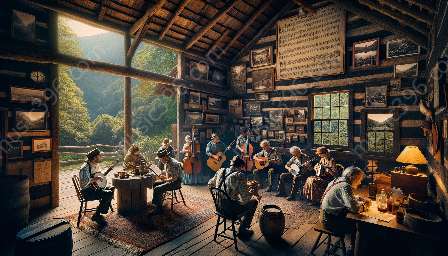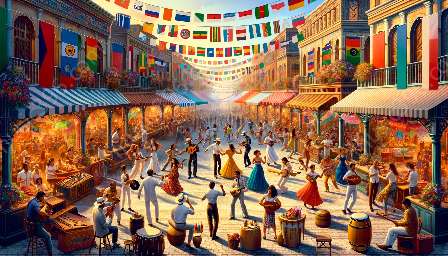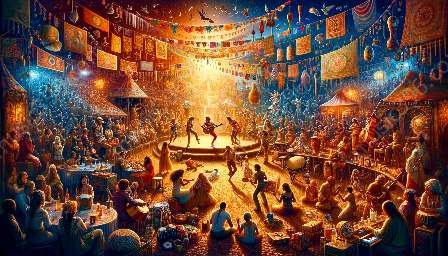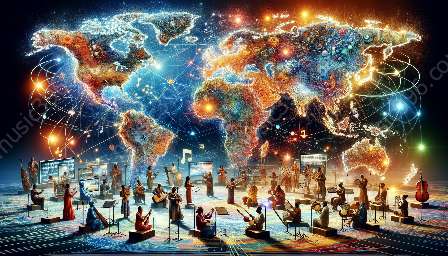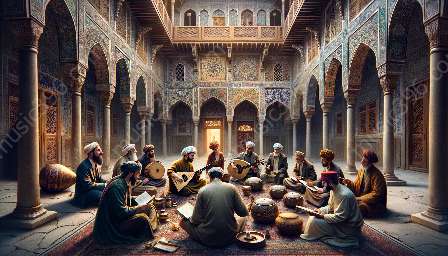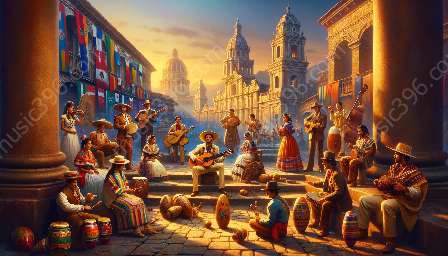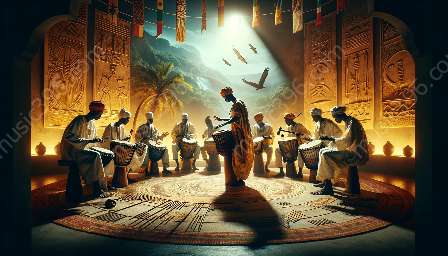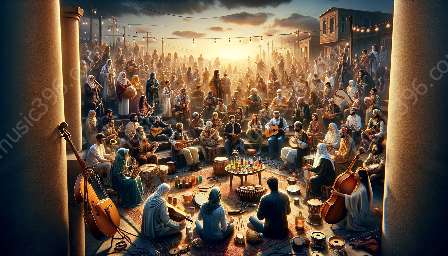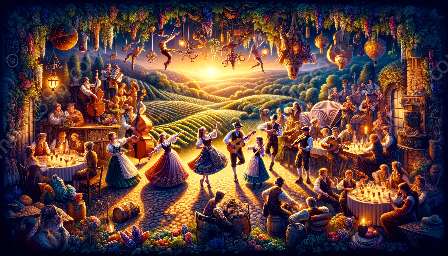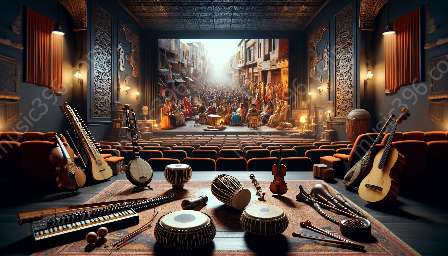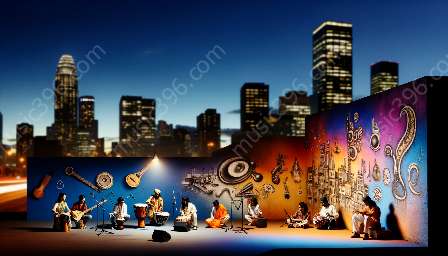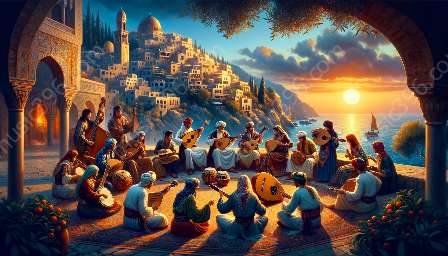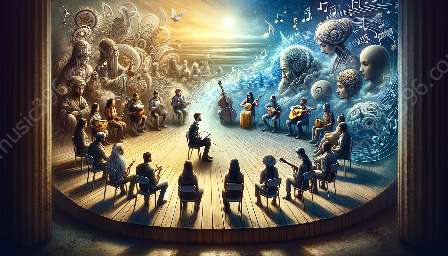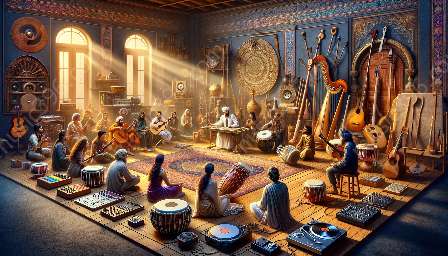Religion has always played a pivotal role in shaping the cultural and musical traditions of Latino communities around the world. From the rhythms of Afro-Cuban music to the melodies of Mexican folk music, the influence of spirituality and religious beliefs is deeply intertwined with the musical expressions of Latino culture.
Understanding Latino Music Cultures
Latin music encompasses a rich tapestry of genres and styles, ranging from salsa and reggaeton to mariachi and cumbia. These diverse musical traditions are rooted in the socio-cultural experiences of Latino populations across the Americas, including Central and South America, the Caribbean, and the United States.
Within these varied musical landscapes, religion serves as a foundational element that shapes the artistic and sonic landscapes of Latino music. By delving into the historical, social, and religious contexts of Latino communities, it becomes evident how religious beliefs have left an indelible mark on the development and evolution of their music.
Ethnomusicology and the Study of Latino Music Traditions
Ethnomusicology provides a comprehensive framework for understanding the intricate connections between religion and music within Latino cultures. By examining the spiritual practices, rituals, and belief systems of Latino communities, ethnomusicologists can unravel the complex interplay between religious expression and musical creativity.
Through in-depth fieldwork, interviews, and analysis, ethnomusicologists shed light on the significance of religious symbolism, iconography, and narrative in the musical traditions of Latino communities. This multidisciplinary approach allows for a deeper appreciation of how religion permeates every aspect of Latino music, from its rhythmic structures to its lyrical themes.
The Spiritual Significance of Music in Latino Culture
For many Latinos, music is not merely a form of entertainment but a powerful medium for spiritual communication and expression. The fusion of indigenous, African, and European religious practices has given rise to a diverse array of musical styles that serve as conduits for religious devotion, healing, and celebration.
Within the context of Catholicism, which has historically been a dominant religious influence across Latin America, music takes on profound ritualistic dimensions. From the exuberant processions of Semana Santa to the joyous celebrations of La Virgen de Guadalupe, music becomes an integral part of expressing and reinforcing religious identity and faith.
Similarly, in Afro-Caribbean traditions, such as Santeria and Candomblé, music is deeply intertwined with spiritual ceremonies and encounters with the divine. The rhythmic beats of drums and the melodic chants become vessels for invoking deities and ancestral spirits, fostering a harmonious relationship between the earthly and supernatural realms.
Redefining Cultural Identity Through Religious Music
Religion has also been instrumental in shaping the cultural identity of Latino communities through music. Whether through the enduring legacy of colonial hymns or the emergence of contemporary Christian hymnals, faith-based music serves as a connector that bridges generational and geographical divides within the Latino diaspora.
Additionally, the fusion of indigenous and African religious practices with Catholicism has led to the development of unique musical genres such as the Andean pan flute music and Afro-Latin jazz. These hybrid musical forms reflect the syncretic nature of Latino spirituality and highlight the resilience and adaptability of cultural traditions in the face of historical adversity.
Transformative Power of Music: Healing and Resistance
Religious music within Latino cultures also plays a crucial role in fostering resilience and resistance against social injustices and adversity. From the revolutionary protest songs of the Nueva Canción movement to the spiritual hymns of liberation theology, music has been a catalyst for advocating social change and addressing systemic inequalities.
Moreover, within Latino immigrant communities in the United States, music serves as a source of solace and solidarity in the face of acculturation and marginalization. Religious songs and hymns act as sonic anchors that provide comfort and a sense of belonging amidst the challenges of adapting to a new cultural landscape.
Preserving and Innovating: Religion's Impact on Latino Music Today
As Latino communities continue to evolve and interact with global cultural trends, the influence of religion on their music remains as impactful as ever. Contemporary Latin music genres, such as reggaeton and bachata, often incorporate religious themes and symbolism, reflecting the enduring spiritual connection within Latino musical expressions.
Furthermore, the proliferation of digital platforms and social media has allowed for the preservation and dissemination of religious music traditions within Latino communities. From digital archives of indigenous chants to virtual religious gatherings, technology has become a vital tool for maintaining the continuity of religious music practices across diverse Latino populations worldwide.
Conclusion
In essence, the role of religion in shaping Latino music traditions is multifaceted, encompassing spiritual, cultural, and socio-political dimensions. By acknowledging the profound influence of religious beliefs on music, we gain a deeper understanding of the intricate tapestry of soundscapes that define Latino musical expressions.
Through the lens of ethnomusicology, we can appreciate the dynamic interplay between religion and music within Latino cultures, recognizing the resilience, creativity, and diversity that arise from these interconnected influences. As Latino music continues to evolve, it is imperative to recognize and celebrate the enduring legacy of religious traditions in shaping its vibrant and ever-evolving musical landscape.


